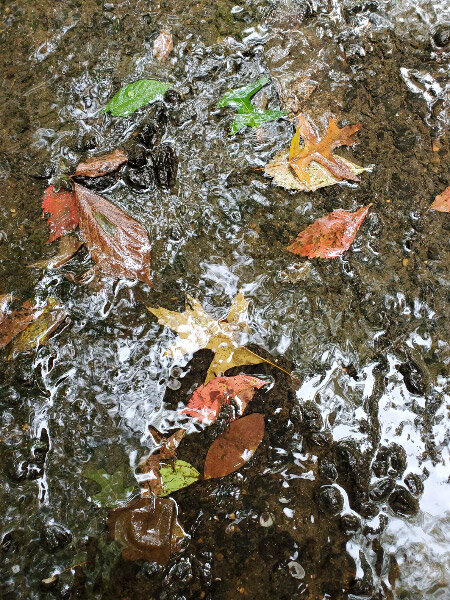The items below were ‘the cream’ of the articles and websites I found this past week. Click on the light green text to look at the article.
Old Growth – Mitch Epstein photographs of very old trees.
The true story of a famed librarian and the secret she guarded closely – Belle da Costa Greene, the first director of New York's historic Morgan Library and Museum.
Inside Turkey’s Mysterious Ancient City That Once Sheltered Thousands—Underground - The Derinkuyu underground city is a sort of gargantuan anthill, except made by and for humans—up to 20,000 of them at a time, in fact. The city descends 280 feet into the earth, divided into eight levels. Upper levels were primarily used for living and sleeping, while lower levels were used for storage, even housing a dungeon. The far-stretched system of interconnected rooms was carved out of the Cappadocia region’s tuff rock. People didn’t live in these underground quarters year-round, however, as they were mainly used for shelter during times of conflict or extreme weather.
Climate change will affect food production, but here are the things we can do to adapt - Farmers can pick crop varieties best suited to different climate condition...production can shift to places with more optimal temperatures…planting and harvest times can shift as the seasons shift…focusing on the right irrigation, fertilizer, pesticides synchronized to climate change. We have the chance to build a more productive and resilient food system, but it’s not guaranteed that we will. It depends on whether the seeds, irrigation, and adaptation practices will be available. That will require real and sustained investment from governments, donors, and private companies.
Toothbrushes and showerheads covered in viruses ‘unlike anything we’ve seen before’ - We live in a richly microbial world. Interactions with bacteria and other microbes in our homes are an integral part of our human biology.
The monarch butterfly may not be endangered, but its migration is - Migrating monarchs don't fly at night, so they spend their evenings in bunches on trees or shrubs, known as roosts. The study relied on 17 years of data from more than 2,600 citizen scientist observations of monarch roosts along the butterfly's migration route. The researchers found that roost sizes have declined by as much as 80%, with these losses increasing from north to south along the migration route. The evidence shows that when monarchs are reared in a captive environment, either indoors or outdoors, they're not as good at migrating.
World’s Rivers Are Driest They - In 2023, the hottest year on record, the Mississippi River and Amazon River basins were at all-time lows, while the Ganges, Brahmaputra, and Mekong rivers, which all have their headwaters in the Himalayas, were also unusually dry. Across nearly half the globe, rivers were drier than normal.
The worrying puzzle behind the rise in early-onset cancer - Over the past 10 years, rates of colorectal cancer among 25- to 49-year-olds have increased in 24 different countries, including the UK, US, France, Australia, Canada, Norway and Argentina. Perhaps the most obvious explanation points to the role of obesity and metabolic syndrome, conditions which have been associated with driving cancer risk through increasing inflammation throughout the body and causing the dysregulation of key hormonal pathways. Or maybe changes in sleep patterns is part of the explanation. Combined with shifts in lifestyle, many cancer scientists believe that a key driving force for these illnesses is the consequences of various toxic changes within the gut (from microplastics). Antibiotics might be involved too. The bottom line…it’s a looming public health crisis.
New research reveals how large-scale adoption of electric vehicles can improve air quality and human health - Computer simulations show that aggressive electrification of the U.S. vehicle fleet, coupled with an ambitious rollout of renewable electricity generation, could result in health benefits worth between US$84 billion and 188 billion by 2050. Even scenarios with less aggressive grid decarbonization mostly predicted health benefits running into the tens of billions of dollars.
New study explores how universities can improve student well-being - Six guiding principles for improving student well-being:
Embedding well-being into curricula for broader, more accessible adoption.
Having each initiative only focus on one or two aspects of well-being, making it easier to create instruction that can also be more immersive.
Tailoring initiatives to the student body and university culture.
Securing buy-in from faculty.
Ensuring new offerings are accessible and don't create additional financial burden for students.
Employing an iterative assessment framework at the beginning to make it easier to change or scale up a program.


































